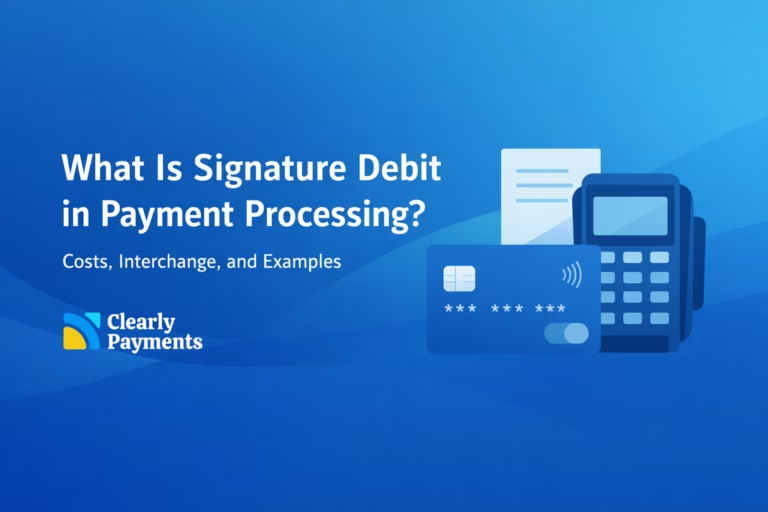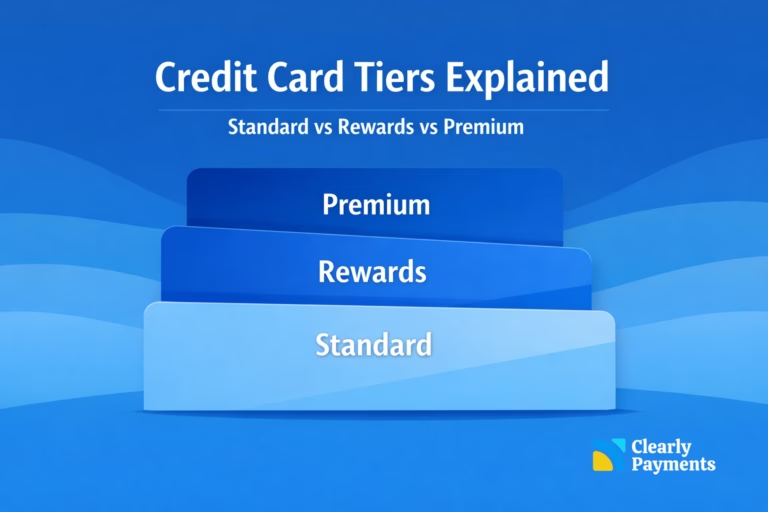Law firms handle sensitive client funds, including retainers, settlements, and real estate closings. Managing these funds properly is not just good business practice, it is a legal obligation. That is where escrow and trust accounts come in.
This guide explains how escrow works for legal payments, outlines compliance requirements, and shows how Clearly Payments supports law firms with trust-compliant payment processing.
What Is a Trust or Escrow Account?
Law societies in Canada and bar associations in the United States require law firms to use trust or escrow accounts when handling client funds. These accounts ensure money is kept separate and used only for the purposes authorized by the client.
A trust account is:
- A separate bank account that holds client funds, not firm funds
- Used for retainers, settlements, deposits, or third-party disbursements
- Required to be fully traceable, auditable, and regularly reconciled
How Trust Accounts Work in Legal Payments
More than 70 percent of legal clients today expect to pay using credit cards or online methods. When those payments are for unearned funds, such as retainers or settlements, they must go into a trust account, not a general business account.
The flow with trust accounts look like this:
- A client pays by credit card or EFT through a secure online form
- The funds are automatically deposited into a designated trust account
- The firm bills against those funds as services are delivered
- Transfers to the operating account are only made for earned fees
This setup ensures your firm stays compliant with trust rules while offering modern payment options.
Why Escrow Compliance Matters for Law Firms
Trust accounting violations are among the most common reasons for disciplinary action against lawyers. According to multiple law societies, issues with trust funds account for over 30 percent of serious compliance cases.
Common mistakes include:
- Commingling client funds with the firm’s own money
- Withdrawing fees before they are earned
- Failing to keep detailed records and reconciliations
Clearly Payments helps law firms stay on track by enforcing trust account separation and providing clear audit trails.
Escrow Features Built for Legal Professionals
Lawyers need tools that support their unique regulatory environment. Our system was built to meet those needs while keeping the payment experience easy for clients.
Here are the key features we offer:
Separate Trust and Operating Accounts
Automatically route funds into the correct account to meet trust requirements.Client Payments by Credit Card, EFT, or ACH
Accept payments online or in-person, with funds directed straight into the trust account.Controlled Transfers to Operating Accounts
Move earned fees only when appropriate, reducing risk and simplifying reconciliation.Clear Reporting and Audit Trails
Download reports that match your reconciliation and law society requirements.Built-In PCI and Data Security Compliance
All payment processing meets security standards to protect sensitive client and payment information with PCI DSS.
Legal Use Cases for Escrow & Trust Payments
Trust accounts are used across nearly every area of law, and each practice has its own specific workflows. In all cases, trust compliance is required by law and monitored by regulatory bodies.
Examples include:
- Family Law: Holding client retainers and distributing settlement agreements
- Real Estate: Managing deposits, closing funds, and third-party payouts
- Personal Injury: Holding large settlements before structured disbursements
- Corporate and Commercial Law: Handling M&A funds, shareholder agreements, and escrows
Clearly Payments makes it easier for firms of any size to handle these scenarios professionally and in compliance.
Why Legal Firms Choose Clearly Payments
A growing number of law firms are moving away from paper cheques and outdated payment processors that do not support trust accounting. Clearly Payments offers a modern, compliant alternative built specifically for professional services.
Firms choose us because we help them:
- Accept modern payments that clients prefer
- Keep trust and operating funds completely separate
- Reduce time spent on reconciliation and reporting
- Stay compliant with law society and bar association rules
Whether you’re a solo practitioner or part of a large firm, Clearly Payments can simplify your trust accounting and improve the client payment experience.




